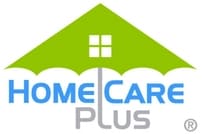Agingcare.com has compiled a list of the most asked tax questions by caregivers complete with answers from the IRS to help you sort through the confusing tax code.
Answers to Tax Questions Caregivers Ask Most
by Marlo Sollitto
With tax time comes rules, exceptions, exemptions, requirements – and lots of confusion. AgingCare.com has gathered a list of frequently asked questions that caregivers ask most, with responses from the IRS website.
I am a caregiver and my elderly parent lives in my home. Can I claim my parent as a dependent on my tax return?
You may claim your parent as a dependent if the following tests are met:
- You are not a dependent of another taxpayer.
- Your parent does not file a joint return.
- Your parent is a U.S. citizen, U.S. national, U.S. resident, or a resident of Canada or Mexico.
- You paid more than half of your parent’s support for the calendar year.
- Your parent’s gross income for the calendar year was less than the exemption amount.
- Your parent DOES NOT have to live with you in order to claim them as a dependent, if you’ve meet the above criteria. Relatives who quality who do not have to live with you include: mother, father, grandparent, stepmother, stepfather, mother-in-law, father-in-law.
See Publication 17, Your Federal Income Tax, and Table 3-1 on page 27, “Overview of the Rules for Claiming an exemption for a Dependent.”
I am a caregiver and my elderly parent lives in my home. Can I file as head of household?
You may file as head of household if you meet the following requirements.
- You are unmarried or “considered unmarried” on the last day of the year.
- You may claim a dependency exemption for your parent.
- You paid more than half the cost of keeping up a home for your parent for the tax year.
Your dependent parent does not have to live with you. Your parent DOES NOT have to live with you in order to claim them as a dependent, if you’ve meet the above criteria. Relatives who quality who do not have to live with you include: mother, father, grandparent, stepmother, stepfather, mother-in-law, father-in-law.
See Special rule for Parent , in Publication 17, under Qualifying Person. See also Publication 501: Exemptions, Standard Deduction, and Filing Information.
Can I claim a medical expense for modifications I made to my home to accommodate my parent’s medical condition?
| Yes, but only if your parent was your dependent at the time the medical services were provided or at the time you paid the expense. Also, the amount of the allowable medical expense is the cost of the modification decreased by any resulting increase to the value of your home. Finally, your total deduction for medical and dental expenses must be reduced by 7.5 percent of your adjusted gross income.See Publications 17 and 502 for additional information. |
My parents occasionally give me money to offset some of the cost of their care. Do I have to pay taxes on this money?
An amount of money that your parents give you to offset their expenses is not taxable to you, however, you should take this amount into account in determining whether your parents are your dependents.
See Publication 501, Exemptions, Standard Deduction, and Filing Information
I pay for some of my parent’s expenses medical expenses. Can I deduct these expenses on my tax return?
If you can claim your parent as a dependent, you also may be able to claim a deduction for the portion of your parent’s medical or dental expenses that you paid. However, your total deduction for medical and dental expenses must be reduced by 7.5 percent of your adjusted gross income.
See Publication 17, pages 140-144, for additional information. See also Publication 501, Exemptions, Standard Deduction, and Filing Information; Publication 502, Medical and Dental Expenses.
| As a condition of acceptance their assisted-living community, my parents relinquished all ownership rights in their home to the community. Does this arrangement have any tax consequences? |
| Yes, this transaction will be considered a sale of their home. The property was transferred for services.See Publication 523 “Selling your Home” for additional information. |
My parent is suffering from dementia. I cash his/her monthly social security check and use the proceeds for his/her care. What are the tax consequences?
Your parent’s social security benefits are not taxable to you. However, in determining whether your parent is your dependent, you should consider the benefits used for your parent’s support as support provided by your parent.
See Publication 501, Exemptions, Standard Deduction, and Filing Information, for additional information.
My parent signed his/her home over to me. Does this transaction have to be reported to the IRS?
Yes. If certain conditions apply, this transaction would be considered a taxable gift from your parent to you. Generally, your parent must file a gift tax return ( Form 709) if any of the following apply:
- Your parent gave gifts to at least one person (other than his/her spouse) that are more than the annual exclusion for the year. Check Publication 950 for the 2012 annual exclusion.
- Your parent and his/her spouse are splitting a gift.
- Your parent gave someone (other than his/her spouse) a gift of a future interest that he or she cannot actually possess, enjoy, or receive income from until some time in the future.
- Your parent gave his/her spouse an interest in property that will be ended by some future event
NOTE: If any of the above conditions apply, your parent is required to file a Form 709, even if a gift tax is not payable.
See Publication 950 for additional information on gifts.
I received a death benefit from my parent’s life insurance policy. Do I have to pay taxes on that money?
Life insurance proceeds paid to you because of the death of the insured person are not taxable unless the policy was turned over to you for a price. This is true even if the proceeds were paid under an accident or health insurance policy or an endowment contract. However, interest income received as a result of life insurance proceeds may be taxable.
See Publication 525 for additional information.
Links to IRS documents listed in this article
Publication 17: Your Federal Income Tax
Publication 501: Exemptions, Standard Deductions and Filing Information
Publication 502: Medical and Dental Expenses
Publication 523: Selling Your Home
Publication 525: Taxable and Non-Taxable Income
Publication 950: Estate and Gift Taxes
Agingcare.com is a leading online community that connects people
caring for elderly parents to other caregivers, personalized
information, and local resources. Agingcare.com has become the trusted
resource for exchanging ideas, sharing conversations and finding
credible information for those seeking elder care solutions. For more
information, visit www.agingcare.com.
- Making Strides of Charleston - October 22, 2021
- Watching out for Scammers - May 5, 2021
- Sleep and Tiredness - April 13, 2021


